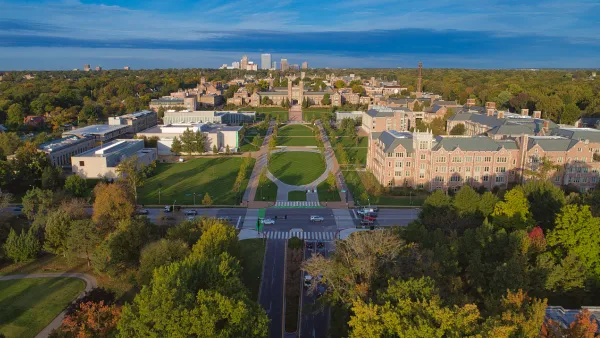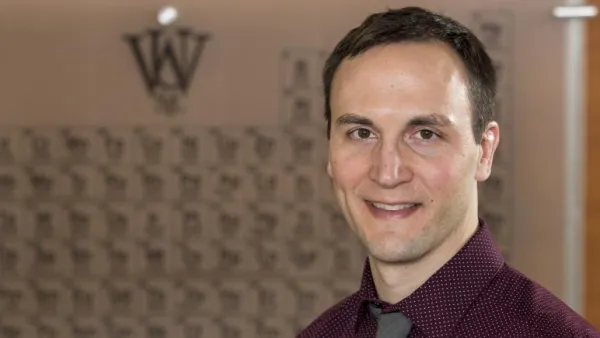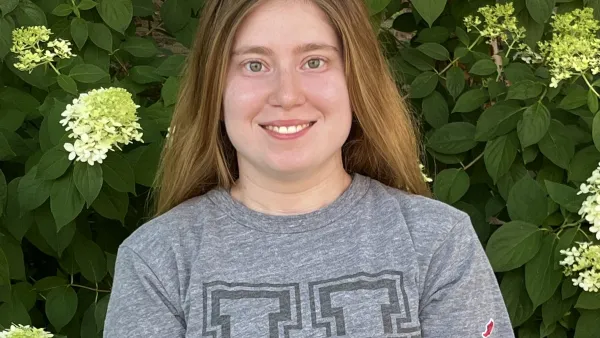
Kevin Moeller, professor of chemistry in Arts & Sciences, won the 2021 Jaroslav Heyrovsky Prize for Molecular Electrochemistry. The prize is awarded annually by the International Society of Electrochemistry to a scientist who has made an important contribution to the field of molecular electrochemistry in the last five years.
In his nomination letter, Moeller’s longtime collaborator and past Heyrovsky Prize winner Daniel Little, distinguished research professor of chemistry and biochemistry at UC Santa Barbara, described Moeller as a “scholar of the highest caliber” whose contributions to the field of molecular electrochemistry are not only of great importance but also “refreshing for their creativity, elegance, insight, and practical utility.”
Moeller’s research focuses broadly on the use of electrochemistry as a synthetic tool for constructing everything from complex organic molecules to two-dimensional addressable surfaces. It involves the discovery, exploration, and development of new reactions, as well as the development of new methods for the analysis of molecular interactions. Little also noted that Moeller has played a seminal role in the recent renaissance of organic electrochemistry and its current widespread acceptance by the synthetic chemistry community.
Following its initial development, electrochemistry was widely viewed as having limited applications outside of industrial settings, but Moeller saw potential. “A few of us recognized that the technique offered opportunities to both conduct unique transformations that could not be accomplished using more traditional, accepted methods and to achieve oxidation and reduction reactions in a more sustainable way,” Moeller explained.
Over the course of his career, Moeller has focused on developing new reactions that would allow him to achieve transformations of interest to the synthetic community. He then translated his work into language the broader chemistry community was already familiar with.
“We eventually showed that the key to understanding an electrochemical reaction was often a matter of focusing on the same physical organic chemistry concepts that most organic chemists were already using in their own work, an observation that demystified electrochemistry for the larger community,” Moeller said. “Much of our current work – from the development of new reactions that work on microelectrode arrays to modifying electrode surfaces – continues to provide examples for the community as to how electrochemistry can be employed to solve problems encountered by synthetic chemists, particularly problems encountered on the chemistry/biology interface.”
Recent publications from Moeller and his group have included contributions to using physical organic chemistry to understand and shape the course of electrochemical processes, reaching an unprecedented level of understanding of the nature of reactive intermediates, optimizing electrochemical methods, and detecting interactions between small molecules and bioreceptors in real-time. Throughout this work, Moeller highlights the potential for molecular electrochemistry to break new ground and address a range of problems, including biomedical applications. Moeller also prioritizes supporting the work of young scientists, whose creative approaches to electrochemistry are continuing to expand the field and opening new avenues of inquiry.



